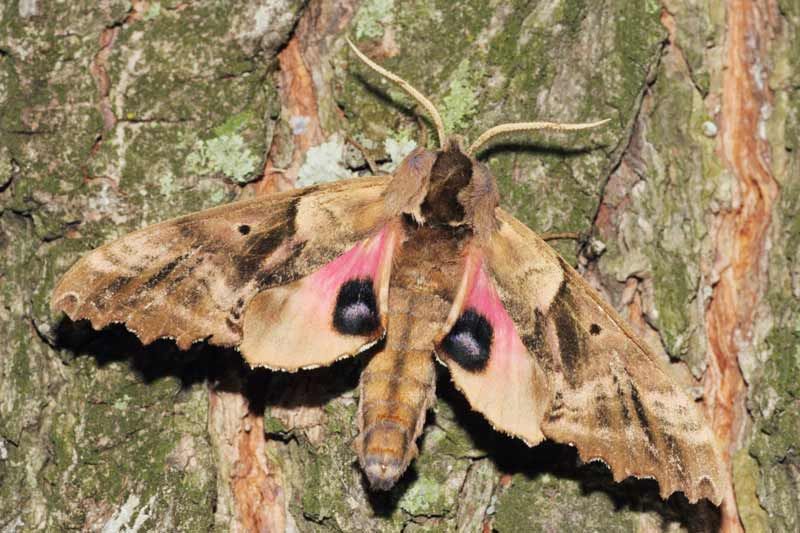Catherine Reynolds | Jul 20, 2016
Mike Burrell finds beauty where many people can’t.
Looking past the night sky to a source of light, he admires the moths fluttering around the beam. He distinguishes their colour, size and species. He knows they are an invaluable part of nature. “We need moths for the health of our eco-system,” contends the 32-year-old zoologist. “Like anything, if we remove them, we’ll probably have issues.”
Burrell was helping a group of 12 people understand moths at an evening workshop at Elbow Lake Environment Centre (ELEC) on July 16. The workshop was an initiative of ELEC and Kingston Field Naturalists.
Considered a nuisance by many, moths are the quiet workers of the night. “They get a bad rap,” he admits. “Most of them are just going about their business pollinating plants. For the most part, they’re just another actor impacting the ecology of our forests.”
By last July, 783 types of moths were found in South Frontenac. Burrell believes that more than twice that number are waiting to be found and identified.
“I just love the diversity of them; there are so many,” he says with a smile. “You’re not going to go out and not see something new. It’s pretty neat to go out and see something new whenever you want.”
A volunteer with the field naturalists who works with rare animals in Ontario, Burrell is pleased with the public’s interest in the insects.
“We managed to see a lot of moths,” he says with a laugh about the workshop, which described the area’s mix of southern and northern species. “I’d say we were successful… Basically, every kind of plant you can find will have a moth feeding on it,” Burrell explains with authority. “There are all sorts of life histories with the species. There are some rare moths (too). They are just an amazing group of animals to learn about.”
We only saw the Blinded Sphinx on Saturday.
More Stories
- The Sun Shines On The Parham Fair
- Creating Your Own Weather, Forever and Ever
- Silver Lake Pow Wow Set For A Big Year
- South Frontenac Receives Substantial Provincial Grant for their Verona Housing Project
- South Frontenac Council Report - August 12
- Dumping To Be Curtailed At Loughborough Waste Site
- Central Frontenac Inching Towards Increasing Severance Opportunities
- Addington Highlands Council Report - August 12
- Addington Highlands Council Report - August 5
- Addington Highlands Council Report - August 12

